Original versus reissue: age matters (cont.)
Understanding wear and tear and being honest about your priorities are essential skills for a collector
We saw how the year of release can give you important clues about a record’s performance on your turntable and on the resale market. You should also pay close attention to a record’s condition before buying.
Wear and tear
The more a record gets played, touched and handled, the more likely it is to suffer. There’s no way of sugarcoating this reality of life.
As the stylus travels through the grooves, a certain degree of wear and tear (to both the record and the needle) is inevitable. How well a record is stored and handled will affect its sound quality, durability and resale value.
Generally, the newer (i.e. less used or played) the record, the “fresher” the sound and the higher its value. But it’s not as simple as “newer is better”.
When older means better
Some very well preserved sixties or seventies records still sound great. They tend to sell for more than reissues, especially if in high demand. However, a certain degree of surface noise is, at this stage, pretty much unavoidable.
While original pressings from the golden years will almost always have advantages over recent reissues, wear and tear works as an opposing force, pushing sound quality and resale value down.
Due to their collectible value, rare old pressings, even in poor condition, can be more expensive than some reissues in mint condition.
Eighties babies
I personally find that some well-looked-after eighties records sound much better than anything that came before and after. There is a certain punch and depth that makes them truly powerful whilst still giving you a relatively clean sound. And if you find the right version for the right price, they can be cheaper than some inferior reissues.
When newer means worse
One of vinyl’s most beautiful contradictions is that unplayed records will not always necessarily sound better. Sometimes a newly manufactured record needs a couple of plays before it can reach its full potential.
This helps in two ways: to get rid of static and because freshly created grooves occasionally benefit from a good quality stylus sinking in and travelling through them carefully a couple of times. Anyone disappointed about new records skipping — don’t despair, this may be one of the reasons (and/or your setup).
How would you like your sound?
If you are after a clean, undisturbed sound, a properly mastered and pressed reissue in mint or near mint condition (new or like new) will work better for you than an older, second-hand pressing. Precision in the sound is the main reason why some audiophiles favour reissues.
Besides, reissues tend to be cheaper, especially if earlier pressings in good condition don’t abound.
In contrast, if you enjoy (or can live with) a little bit of surface noise and the occasional click and pop as part of the vinyl experience, a well-looked after, older pressing will work best for you. There will certainly be more depth and warmth in the sound.
If an original is rare, in good condition and in high demand, its value will be considerably higher than a reissue. But if you look after it properly, it can be a fantastic investment, as in most cases its value will go up (especially if a reissue comes out right after you got your hands on an old pressing).
More often than not, and generalisations aside, older records tend to sound better. There is simply more depth and power overall — and not just in terms of volume.
However, if the wear and tear is considerable, the benefits of a higher-quality pressing will be offset by the degradation of the vinyl material.
You will need to find the right balance between pressing quality and wear and tear levels. This will ultimately depend on your taste, budget, and the condition and availability of the record.
Why not both?
Listening to vinyl can feel like a race against time. You want to enjoy your records but also worry about their lifespan.
Many collectors own several versions of the same record: an earlier pressing to keep (and play very occasionally) and a decent reissue to spin more often.
Making sacrifices
If you ask me, I want the best possible sound at the lowest possible price with the highest possible returns.
But sometimes you can’t have it all: the best-sounding version of a record may be unavailable or cost a fortune you can’t or don’t want to pay. Sometimes it’s hard to tell whether a record’s value will hold over time.
You may think you are not really fussed about certain things until they start bothering you, especially if you spin and/or trade records every day. This is why you need to try things out and experiment until you realise where your priorities really lie.
Being honest with yourself is key. With vinyl, as with many things in life, you sometimes cannot have it all.
Ask yourself:
How often will you play this record?
How bad are the scuff marks?
Will you intend to resell?
Is this the only version you will buy?
Is surface noise an issue? (I don’t mean the usual crackling sound at the beginning and end of each side — I’m talking proper, loud hissing, not just between tracks, but all throughout the music, including silent passages in songs).
Does the record skip occasionally, and if so, where exactly, and how often?
Can you live with ring wear if the disc is top notch?
How desperate are you to have this record and would you be able/willing to wait for a better or cheaper version?
Maintenance is key…
Dust is the main culprit when it comes to issues such as a muffled or weak sound. Sometimes dust becomes embedded in the vinyl surface, causing long-term damage. It is essential you clean your records, as well as your stylus, regularly.
Wear and tear has a direct impact on a record’s sound and value. Neglecting the proper maintenance and storage of your records will lead, over time, to considerable degradation.
… but don’t stress (too much)
It is not uncommon for vinyl to attract a certain type of individual who may be prone to certain obsessive-compulsive behaviour from time to time (of course this doesn’t apply to me) (of course it does). The attention to detail, the excitement about organising your collection, spotting nuances in sound… you know what I mean.
It’s easy to become fixated with preserving your records in their purest form. By all means you should store, handle and clean your records properly, or as best you can. I cannot stress this enough.
But you should also learn to embrace some of this inevitable wear and tear as part of vinyl’s charm. At the end of the day, your records are there to be played, enjoyed and lived… scuff marks and all.
That’s all for now. Thanks for reading or listening and, as always, happy spinning!





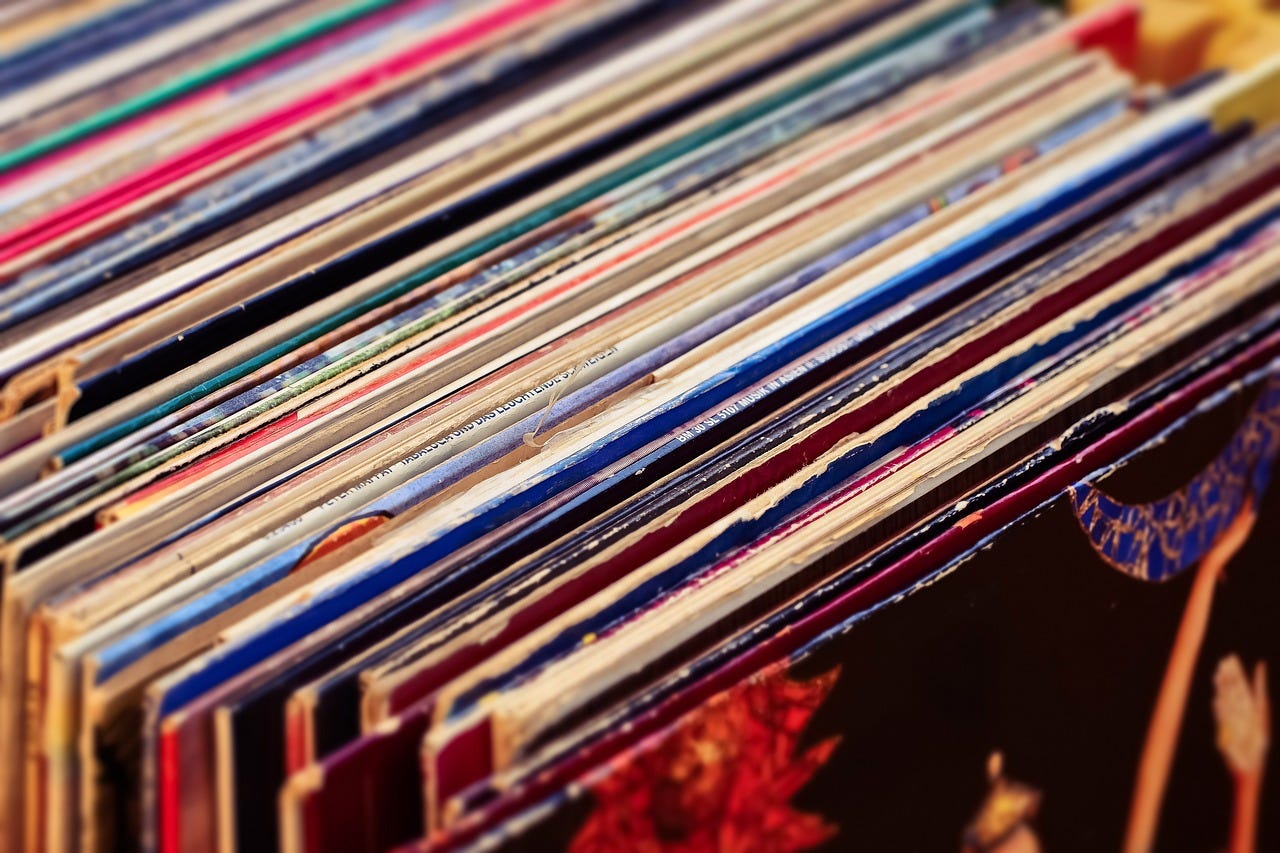
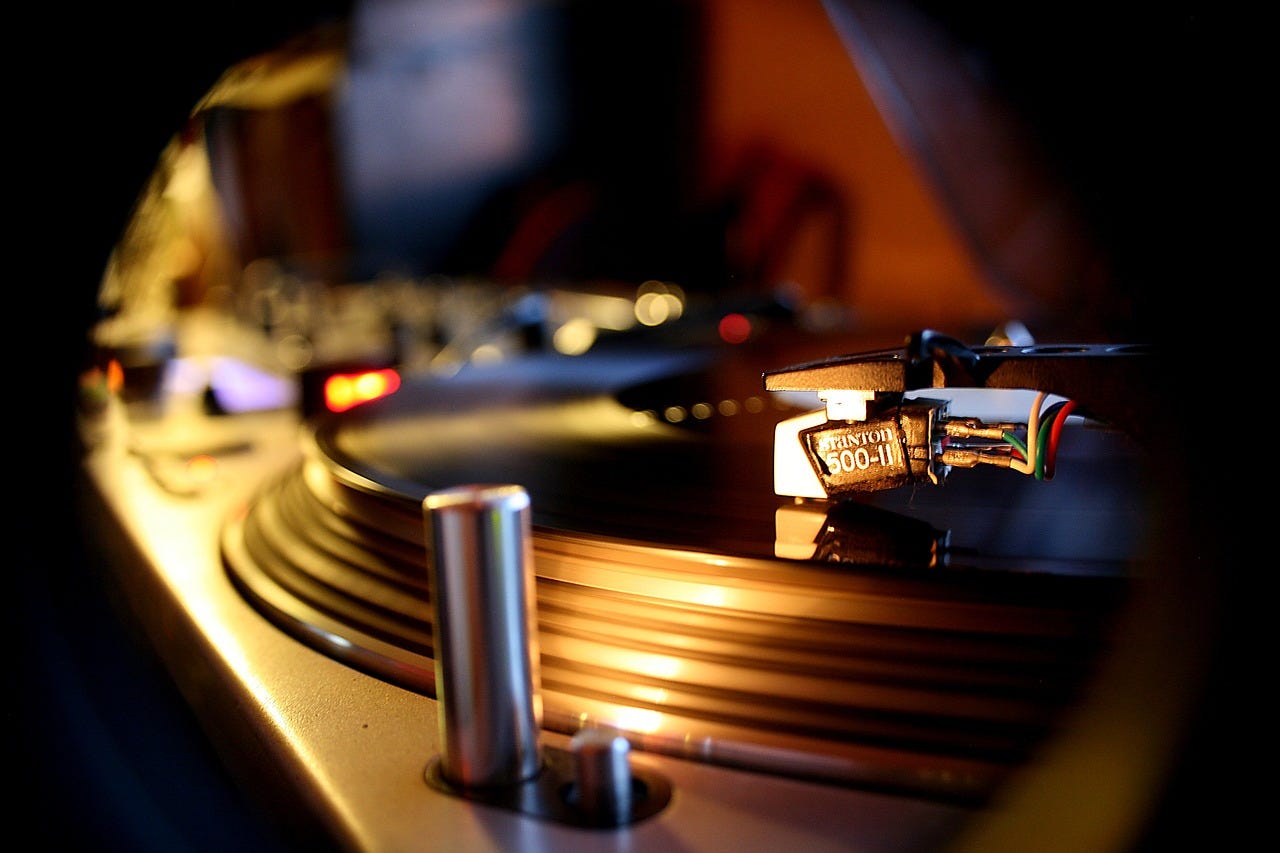
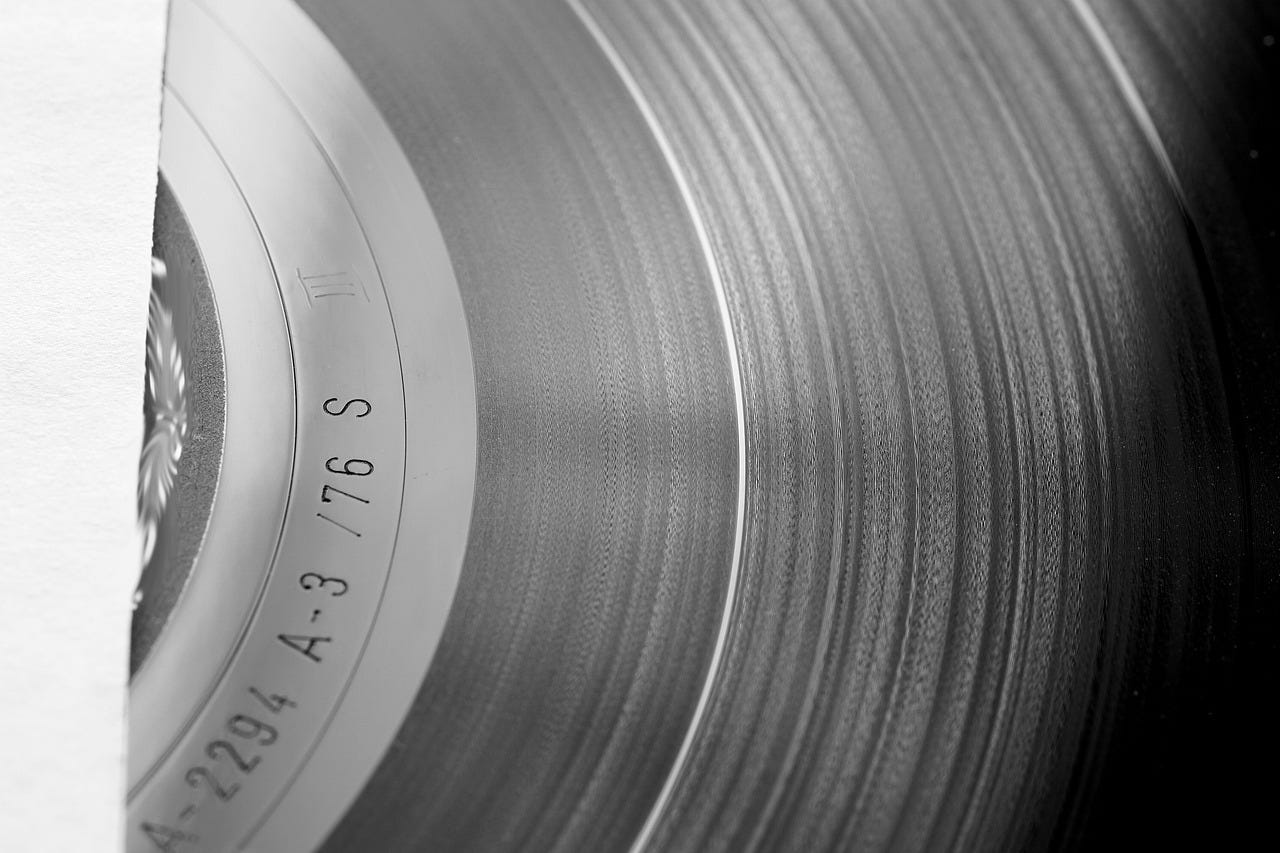
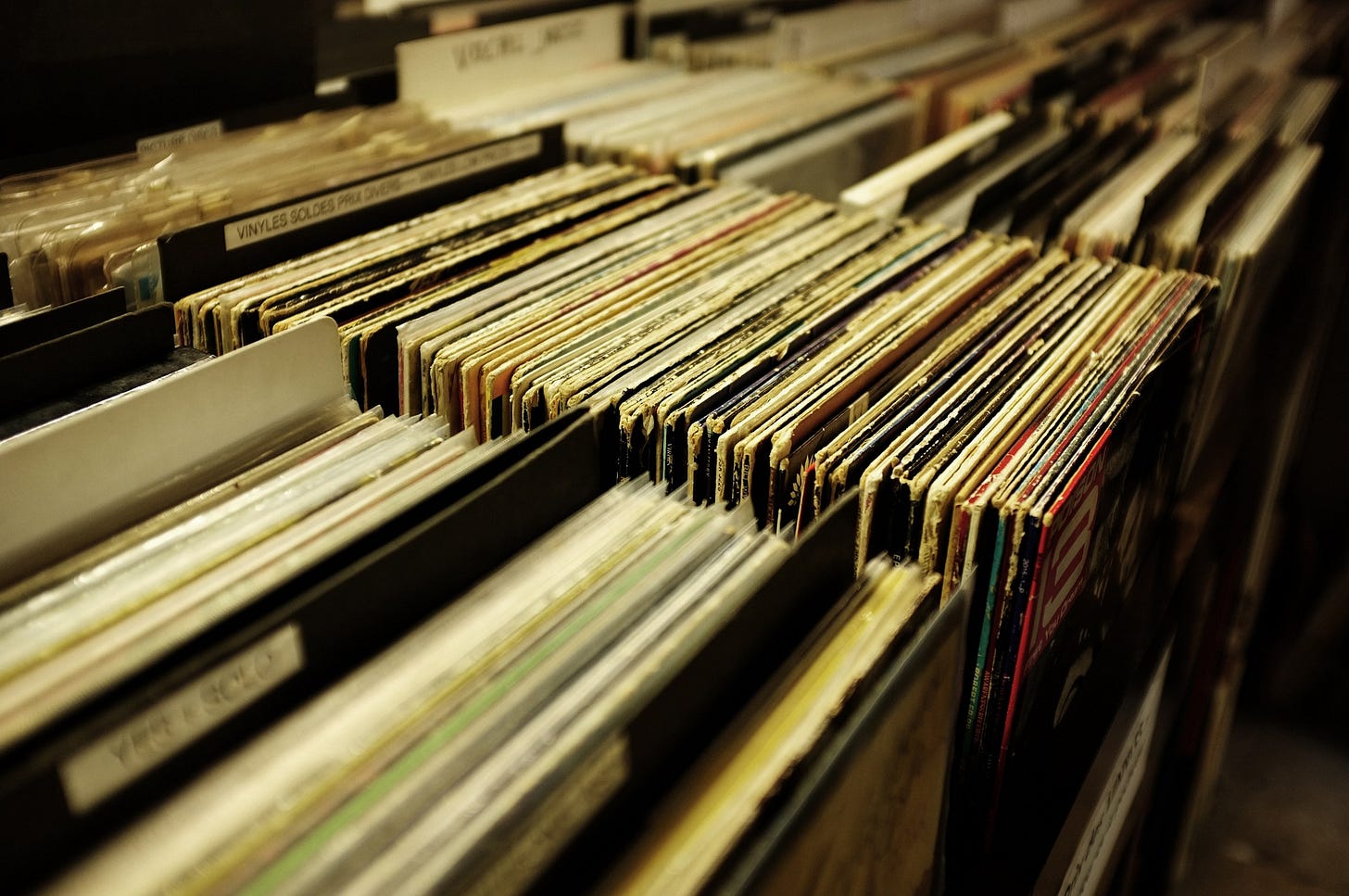


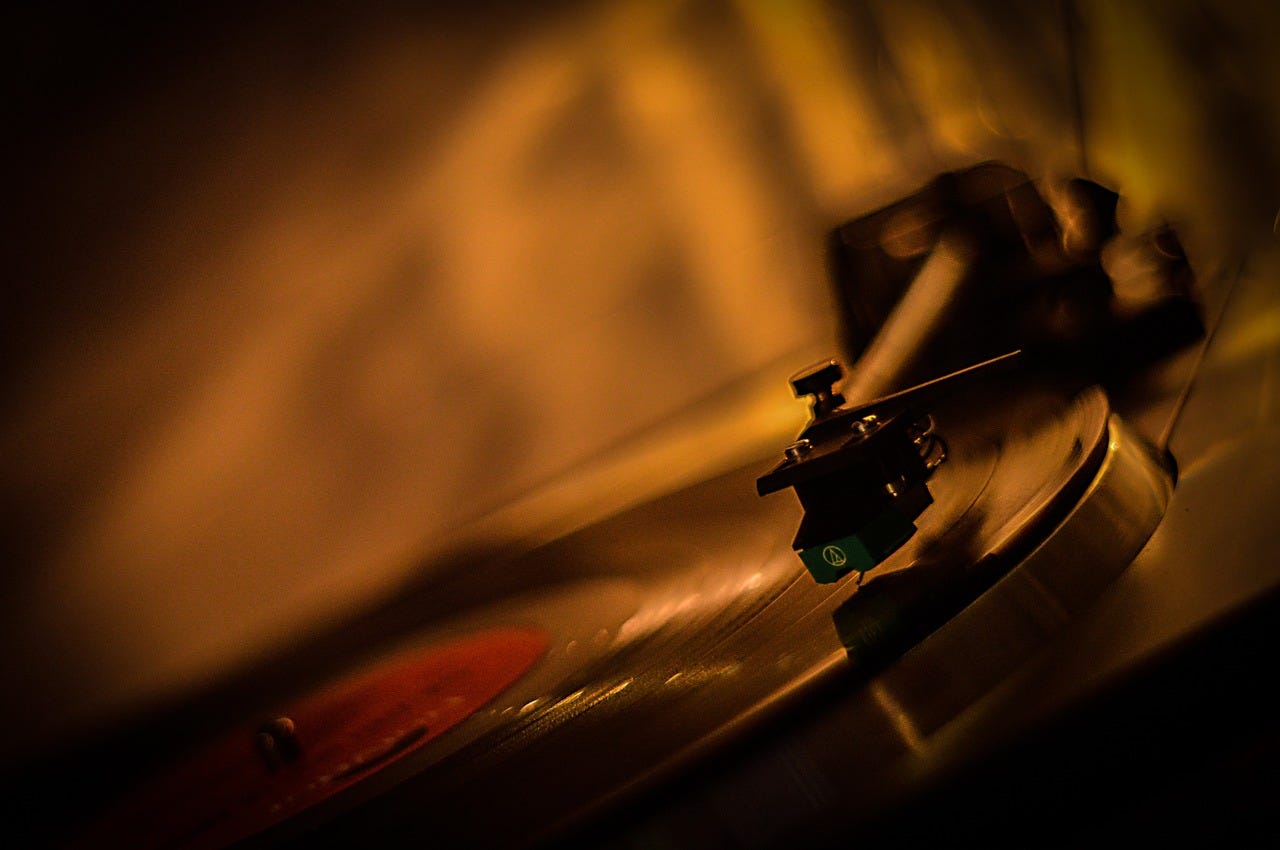
Again, great, Andy, and I'm happy to see folks are asking you tech Qs in your comments! They come to the right place! I loved your last paragraph! For all the hand-wringing obsessions we all have about our vinyl, at some point, we should just relax and enjoy! And, you said it! Thanks!
This one tugged at my heartwarming Daddy rememberies....again, he had 20,000 LPs & 78s (mostly in the jazz arena), and similar to other kids, whose Dad gave them their first fishing gear or first boots and saddle, I remember MY dad gifting me with my first soft, grey, dust-free, non-magnetic (you know what I mean...I forget what it was called) cloth with which to gently wipe (with the groove...and, there IS only one, which I know you know...there's a fun/funny/science-y article lying in wait there, I think!) before each play!
My problem was not doing it first, before placing it on the turntable! I probably was messing with the motor if I waited to lightly drag my cloth on a turning record instead of while still in my hand....but, hey, call me lazy! He also told me not to rub the gathering dust-ball off the stylus...and, he gave me a cute little brush with which to do THAT, as well!
I remember getting in "automatic record cleaners" into my record store in the late '70s: Stick the record in and a motor turns your record around, vertically, to get ultimately scratched up by, I suppose, otherwise well-meaning brushes within! I didn't TRY to sell those, and only wish I could've dissuaded folks when I saw them trundling to the register (till?) with one!
About how often do you change your stylus, and do you have recommendations for how to know when it's time to do so?